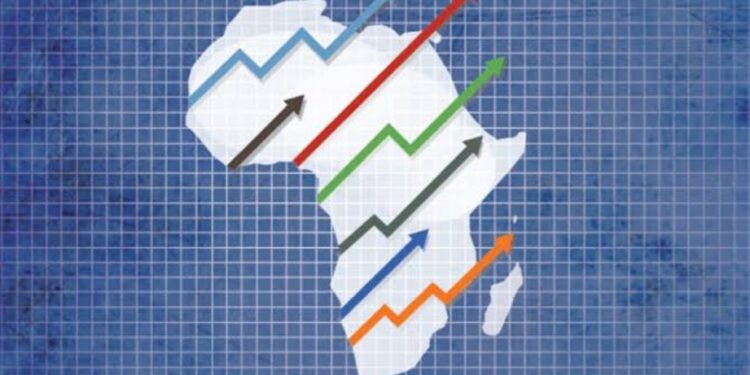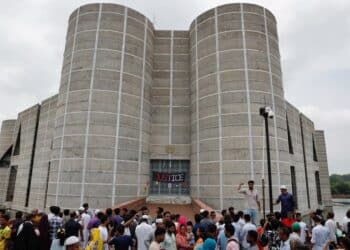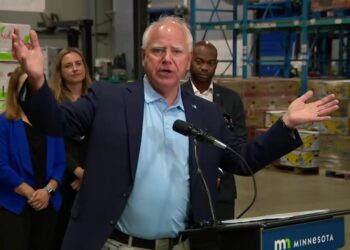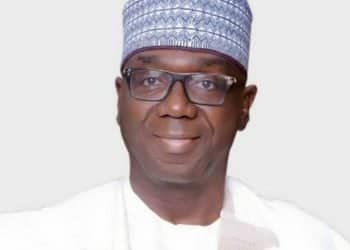A recent visit to one of the East African countries brought me face to face with the economic and political power hidden in the informal sector of the back street workforces in Africa.
The economies of most African countries run on the wheels of the informal sector. Yet, this vast sector, which accounts for more than seventy per cent of the GDP in some countries, is largely unorganized, untrained and unrecognized as an economic unit.
One of the major effects of colonialism has been that successive governments since independence have tread only the established paths of the colonialists for the economic emancipation of their people. This has proven to be a colossal failure as most of these countries, except a few such as Singapore, from Africa to the Asia Pacific, have escaped the trap of underdevelopment, poverty, and want. There must be something wrong with these countries, located in different parts of the world but still experiencing similar economic situations despite their diverse political experiences and struggles.
African societies are organised differently from other societies in the world. There are unique features of the African economy that Western economic experts have not factored into their calculations, and they have made all their recommendations achieve the opposite. African economic emancipation must be homegrown to be impactful and sustainable
Moreover, the colonial economy was never intended to empower the Indigenous population; thus, the economic structures that empowered the Indigenous population were dismantled and are still being dismantled by prescriptions that Western economic experts have been dishing out to African countries. Corruption is a serious impediment, but it is not the only challenge African countries face. Wrong prescriptions have done more damage by pauperising the generality of the population and encouraging corruption in its wake.
The informal sector plays a crucial role in African countries, acting as a significant source of employment and economic activity. However, it is largely unorganized and unregulated, and its impact is only grudgingly acknowledged.
In many African countries, informal activities, particularly agriculture and trade, contribute around 50% of the economic output and 85% of employment. This sector, characterized by its resilience and adaptability, has provided livelihoods for a sizeable proportion of the population. Despite often operating outside formal structures, the informal economy has shown remarkable self-governance and structure. With the advent of digitalization and fintech, this sector has a huge potential for promoting financial and economic inclusion.
As Africa moves towards recovery and development, especially in the post-COVID-19 era, there is a growing recognition of the informal economy’s role in fostering inclusive structural transformations and offering pathways to formality.
The advantages for developing countries, especially in Africa, to focus on their informal economy and regulate and recognize them are numerous. It includes but is not limited to the following:
Employment: The informal sector is a major source of employment, especially with the prevalent high levels of unemployment or underemployment. Many people, particularly those with limited education or formal skills, find employment opportunities in small-scale businesses, street vending/hawking, domestic work, and other informal activities.
Income Generation: For millions of individuals and households, the informal sector generates income and supports livelihoods. It offers opportunities for entrepreneurship and self-employment, allowing people to earn a living through small businesses or informal trading activities. All the government needs to do is upgrade the skills set and quality of production in the informal sector, and it will be transformed into a source of foreign exchange inflow.
Poverty Alleviation: The informal sector often serves as a critical safety net for society’s poor and vulnerable segments. It provides opportunities for marginalized groups, such as women, youth, the disabled and rural populations, to engage in economic activities and improve their living standards. With improved earning power, they will be able to participate in government urban renewal/slum eradication programmes and sustain their environment.
Flexibility and Adaptability: Informal enterprises are typically characterized by their flexibility and adaptability to changing economic conditions. They can quickly respond to market demands, adjust prices, and introduce new products or services, contributing to economic resilience, particularly in times of crisis.
Units of Production and Provision of Services: They redirect the populace from rent seekers and economically dependent citizens to a production-focused population. Traditional manufacturing and production hubs will be organised, and the quality of their output will be improved and made exportable. Thus transforming the entire country into an economic production hub.
Contribution to GDP: Although difficult to accurately quantify due to its informal nature, the informal sector is estimated to significantly contribute to the gross domestic product (GDP) of many African countries. It accounts for a substantial portion of economic activity, especially in agriculture, retail trade, construction, small-scale manufacturing and services.
Tax Revenue: While informal enterprises may operate outside the formal tax system, they still contribute to government revenue through indirect taxes, such as sales taxes on goods and services. However, the potential for tax evasion and revenue leakage remains challenging for policymakers seeking to formalize and regulate the informal sector. With a focused policy thrust to facilitate their operations, their confidence can be won by government and easily brought into the tax net in a win-win relationship.
Challenges and Informality: Despite its contributions, the informal sector faces challenges, including limited access to finance, lack of legal recognition and protection, inadequate infrastructure, and vulnerability to exploitation and harassment. Addressing these challenges require concerted efforts to create an enabling environment for informal enterprises to thrive while promoting their gradual inclusion or transition to the formal economy.
Economic Growth: Integrating the informal sector into the formal economy can contribute to economic growth. By recognizing and formalizing informal businesses, governments can expand the tax base, increase revenue collection, and stimulate economic activity. This can lead to higher GDP growth rates and improved living standards for the population.
Poverty Reduction: The informal sector plays a crucial role in poverty reduction by providing income-generating opportunities for the poor and vulnerable segments of society. Tapping into the informal economy can help lift people out of poverty by enabling them to earn a living through self-employment, entrepreneurship, and small-scale business activities.
Innovation and Entrepreneurship: Informal enterprises are often characterized by their creativity, adaptability, and entrepreneurial spirit. Tapping into the informal sector can unleash the potential for innovation and entrepreneurship, leading to the development of new products, services, and business models. This can drive economic diversification, enhance competitiveness, and foster sustainable development.
Social Inclusion: Integrating informal workers and businesses into the formal economy can promote social inclusion and reduce inequality. Government can empower informal workers and improve their socio-economic status by providing access to formal financial services, social protections, and legal rights. This can help reduce social disparities and promote inclusive growth.
Resource Efficiency: Informal enterprises are often characterized by their ability to operate with limited resources and minimal overhead costs. Tapping into the informal sector can enhance resource efficiency by leveraging existing skills, knowledge, and networks within local communities. This can lead to more sustainable resource use and greater resilience to economic shocks. Experience and expertise can be recognised, licensed and certified incentivised through a robust programme of Recognition of Prior Learning (RPL)
Cultural Preservation: Informal economies often reflect local communities, cultural traditions, practices, and values. Tapping into the informal sector while respecting cultural diversity can help preserve traditional livelihoods and promote cultural heritage. This can contribute to communities’ overall well-being and identity, particularly in rural areas.
Overall, tapping into the informal sector of the African economy can offer a range of benefits, including job creation, economic growth, poverty reduction, innovation, social inclusion, resource efficiency, and cultural preservation. However, it requires a comprehensive approach that combines policy reforms, institutional support, and stakeholder engagement to effectively harness the potential of the informal sector for sustainable development.
This in my view lies the hidden shortcut to the African economic transformation.
Only when we put Africans to work in their locality, doing what they know best at a higher level of quality and efficiency can we successfully commence the journey of sustainable national development.
*Opaluwah, Chairman, Council of Registered Builders of Nigeria (CORBON), sent in this piece.











